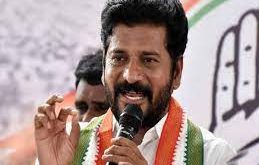 Hyderabad, April 7 (PMI): While the country’s leadership is seized of the way forward after April 14 when the 3 week national lock down in the wake of Corona virus crisis comes to an end and the basis of such decision is being debated, Vice President of India M. Venkaiah Naidu urged that concerns about the health of the people shall take precedence over that of stabilization of economy.
Hyderabad, April 7 (PMI): While the country’s leadership is seized of the way forward after April 14 when the 3 week national lock down in the wake of Corona virus crisis comes to an end and the basis of such decision is being debated, Vice President of India M. Venkaiah Naidu urged that concerns about the health of the people shall take precedence over that of stabilization of economy.
In his assessment of the completion of two weeks of lock down today and the way forward, Shri Naidu opined that the next week will be critical for deciding on the exit from the present nation-wide restrictions in force from March 25. He said that the data regarding the extent and rate of spread of virus infection will have a bearing on exit strategy.
Referring to the consultations between the Prime Minister and Chief Ministers on the exit strategy, Naidu urged the people to abide by whatever decision follows and cooperate with the same spirit that has so far been demonstrated even if hardship were to continue after April 14. He expected that governments will ensure smooth functioning of supply chains and adequate relief and support for the vulnerable sections.
Recalling the overwhelming response of the people to the Janata Curfew on March 22, the nationwide lockdown since March 25 and lighting of candles on April 5, the Vice President stressed that it is an indication of the virtue of spirituality that forms the core of Indian ethos. Elaborating on this, Shri Naidu said that spiritual salvation is all about annihilating self-centeredness and striving for the good of all and the people of the country have demonstrated this core value in abundance during this hour of crisis and such a spirit will help us in overcoming the challenge.
Alluding to the Tablighi Jamaat congregation in the national capital and its fall out when the efforts for flattening the Corona virus curve were bearing fruits, Naidu said that it was an avoidable aberration and an eye opener to others.
The Vice President urged the global community to draw right lessons from the present crisis to effectively face the next imminent one by addressing the inadequacies in respect of effectiveness of Institutions, Infrastructure, Information Sharing, International Cooperation and Individual Actions
 Pressmediaofindia
Pressmediaofindia



